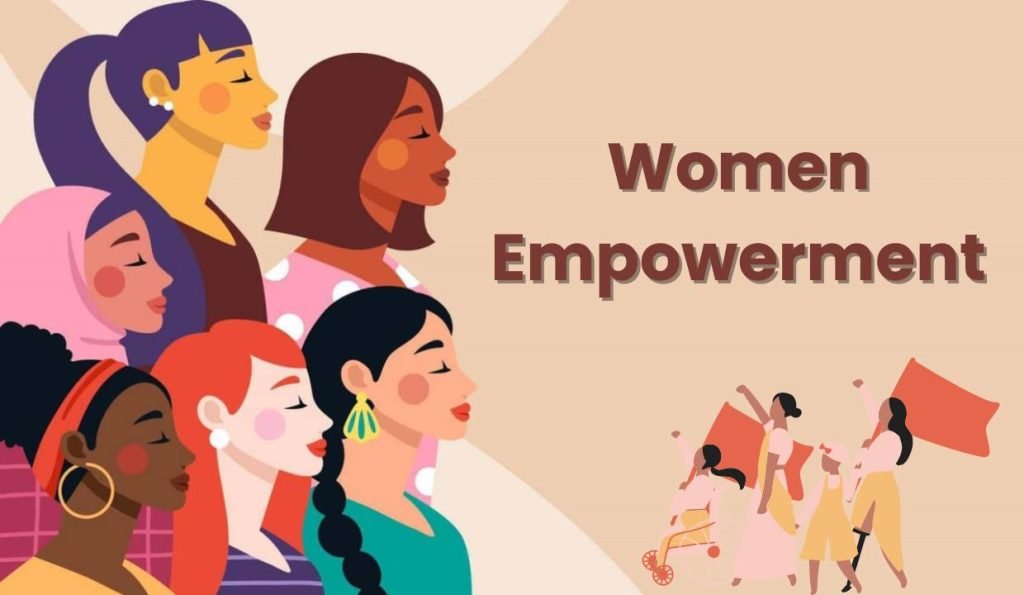

Section: Probable essays / Social Issues / Women Empowerment / Education
“If you educate a man, you educate an individual. But if you educate a woman, you educate an entire family and, eventually, a nation”. Dr. Savitribai Phule
This quote emphasizes “How is women education important for the society and nation?”
Education is a transformative force that plays a crucial role in empowering women and promoting gender equality. It serves as a foundation for personal development, economic independence, and active participation in society.
Women’s education has been a key part of women’s empowerment in India throughout history:
Ancient India: Women were considered equal to men and had the right to receive an education. The Rigveda, the oldest Hindu text, mentions women’s education and encourages women to study the Vedas.
Early Vedic period: Women were involved in many fields, including schooling, spinning, weaving, and agriculture. They also participated in the Swayamvara rite, where women chose their husbands.
19th century: The education of girls in India in the 19th century took great hype and opposed against the patriarchal norms which were against their education. Different education committees are recommended for women’s education. In the Education Dispatch of 1854, a huge pressure was built on female education. This resulted in a number of girls’ schools being set up in different parts of India.
According to the 2011 census, 48.5% of India’s population was female with sex ratio of 943. According to the World Bank India report, only 1 of 11 girls was literate at the time of India’s independence, about nine percent. However, the literacy rate of Indian women has grown over the years. And at present, the women’s literacy rate has jumped to 77% while India’s male literacy rate stands at 84.7%. As per AISHE report, women comprise 48% of overall enrolment in higher education which is all time high in the history of India.
The multifaceted role of education highlights its impact on challenging gender norms, enhancing economic opportunities, fostering leadership, improving health outcomes, and breaking the cycle of discrimination.
Challenging Gender Norms and Stereotypes
Education provides women with the knowledge and skills necessary to challenge and change traditional gender norms and stereotypes. In many societies, cultural beliefs dictate specific roles for women, often limiting their opportunities to pursue education and careers. By promoting gender-sensitive curricula and inclusive teaching practices, education helps to overcome these biases. It empowers women to pursue diverse career paths and participate in decision-making processes. For instance, when girls are educated, they are more likely to question societal expectations regarding marriage and family roles, leading to greater autonomy and self-determination.
Economic Empowerment and Financial Independence
One of the most significant impacts of education on women’s empowerment is its role in economic independence. Education equips women with the skills required to enter the workforce, earn income, and achieve financial stability. Educated women are more likely to secure higher-paying jobs and have better career prospects compared to their uneducated counterparts. According to various studies, women with secondary or higher education earn significantly more than those without formal education. This economic empowerment not only enhances their quality of life but also allows them to contribute to their families’ financial well-being. Furthermore, when women are economically empowered, they can make informed financial decisions, invest in their children’s education, and improve their families’ overall living conditions. This ripple effect contributes to poverty reduction at both individual and community levels.
Leadership Development and Political Participation
Education fosters leadership skills among women by enhancing their confidence and critical thinking abilities. Educated women are more likely to engage in political processes, advocate for their rights, and contribute to policy development. When women hold positions of power and influence, they bring diverse perspectives that lead to more inclusive governance. For example, initiatives aimed at increasing women’s representation in local government have shown that educated women are more likely to participate actively in political discussions and decision-making processes. This participation not only empowers individual women but also strengthens democratic institutions by ensuring that women’s voices are heard.
Health and Well-being
“Girls who receive an education are less likely to marry young and more likely to lead healthy, productive lives” UNICEF
The link between education and health outcomes is well-documented. Educated women tend to have better health knowledge, which translates into healthier behaviours for themselves and their families. They are more likely to understand reproductive health issues, family planning methods, and disease prevention strategies. Research indicates that educated mothers are more likely to seek healthcare services during pregnancy and childbirth, resulting in lower maternal and infant mortality rates. By prioritizing education for girls, societies can improve overall health outcomes, reduce healthcare costs, and enhance the quality of life for future generations.
Breaking the Cycle of Discrimination
Education plays a crucial role in breaking the cycle of discrimination against women. When girls receive an education, they are more likely to delay marriage, have fewer children, and invest in the education of their own children. This intergenerational impact fosters a culture of learning that challenges discriminatory practices within families and communities. Educated women often become advocates for gender equality within their households, encouraging their children—both boys and girls—to pursue education. This shift not only empowers individual families but also contributes to broader societal changes that promote gender equality.
Access to Quality Education
While the importance of education in empowering women is clear, access remains a significant barrier in many parts of the world. Factors such as poverty, cultural practices favoring boys’ education over girls’, inadequate infrastructure, and safety concerns can hinder girls’ enrollment in schools. Governments and organizations must prioritize policies that ensure equal access to quality education for all girls. This includes investing in infrastructure improvements, providing scholarships or financial incentives for families who send their daughters to school, and implementing community awareness programs that highlight the value of girls’ education.
Government Initiatives
In India, various government initiatives aim to promote women’s education and empower them economically. Right to Education Act, 2009 guarantees free education for children between the ages of 6 and 14. Samagra Shiksha is an umbrella scheme was launched in 2019 to promote quality education, strengthen teacher training institutions, and bridge social and gender gaps. Programs such as “Beti Bachao Beti Padhao” (Save Daughter, Educate Daughter) focus on improving female literacy rates while addressing societal attitudes towards girls’ education. Additionally, schemes like “Sarva Shiksha Abhiyan” aim at universalizing elementary education by providing free schooling for children. These initiatives underscore the recognition that investing in women’s education is not only a matter of social justice but also essential for national development.
Conclusion
Education is a powerful catalyst for empowering women across various dimensions—socially, economically, politically, and personally. By providing equal access to quality education, challenging gender norms, promoting economic independence, fostering leadership skills, improving health outcomes, and breaking cycles of discrimination, societies can create a more inclusive world where every woman has the opportunity to thrive. Investing in women’s education is an investment in the future; it unlocks potential that benefits not only individuals but also families and communities at large. As we continue to advocate for gender equality through educational initiatives worldwide, we move closer to achieving a society where all individuals can realize their full potential regardless of gender.